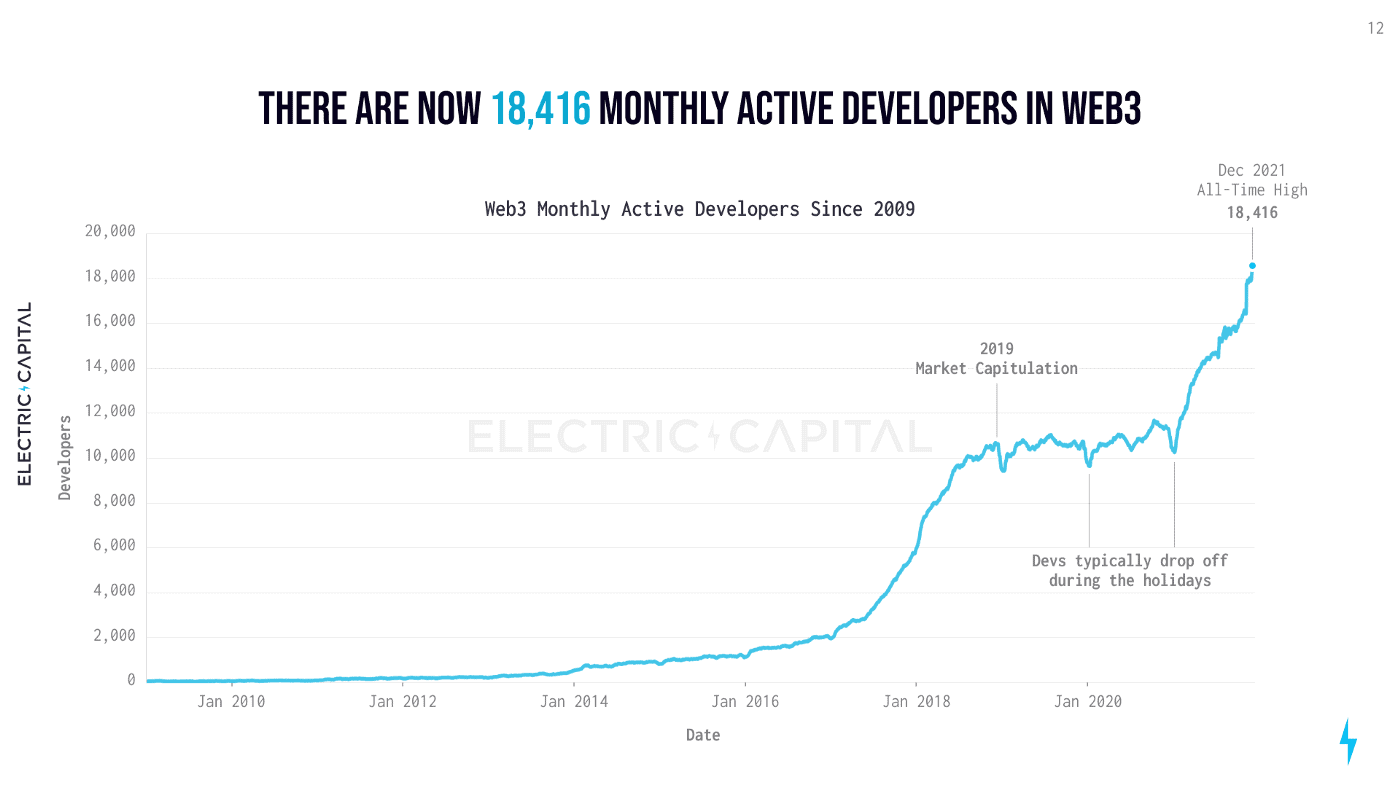A recent report by Electric Capital Developer shows that more developers are getting involved in the decentralized technology space. The 2021 paper shows that $100 billion worth of smart contracts has been locked in Web.3.0 project platforms.
$100 Billion Controlled by 1,000 Developers
DeFi projects which rarely record remarkable success are also among the focus of the study. Among the most intriguing aspect of the data leads to some centralization, as the majority of the funds are in projects that are controlled by 1,000 developers.
The release, published earlier this week, drew its conclusions from approximately 500,000 coding projects at Github with 160 million commits. The paper described Web 3.0 as the fastest-growing niche in the decentralized sphere and stated that the demand for such developers is at an all-time high.
 Monthly Active Developers on Web3. Source: Medium
Monthly Active Developers on Web3. Source: Medium
More Developers Are joining Web 3.0 Projects
The information available through the study shows that 18,000 active developers made monthly commits to open source crypto-related Web 3.0 projects in 2021. Interestingly, 34,000 new developers got involved in the same year. This is set a new ATH record, as the graph above illustrated.
It further observed a 65% increase in the involvement of developers in Web 3.0 projects which also shows a substantially higher affinity to the sector in 2021.
Some of the most notable projects that have seen an influx of commits due to enhanced interest from developers are Bitcoin and Ethereum. Others with noticeable involvement of coders are Polkadot, Solana, Cardano, Cosmos, BSC, and Polkadot. These have more than 250 developers working on their codebases every month.
The concept of Web 3.0 or the decentralized internet has intrigued developers since decentralized technology became a trend. However, few projects such as Polkadot have been able to create practical channels through the interoperability of blockchain networks.
This has shown the practicality and possibility inherent in the concept despite the skepticism of critics such as Elon Musk, who believes that the prospect of a decentralized internet is more of a marketing buzzword.